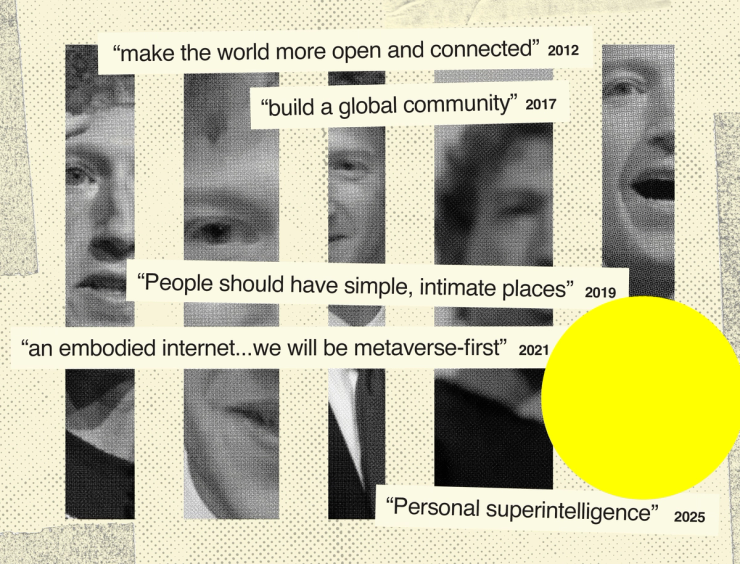The News
Mark Zuckerberg is a manifesto guy. At various crisis points in Meta’s history, he has penned memos meant to calm critics, refocus employees, rebrand the company — literally, in 2019 — around the order of the day: connection, privacy, the metaverse, and now, AI.
His manifesto last week on “personal superintelligence” finally put a vision, if not product specifics, behind the huge checkbook he’s been dangling across Silicon Valley to lure AI talent. He paints other unnamed AI executives as dystopian autocrats creating a centrally planned AI economy, “and then humanity will live on a dole of its output.” He manages not to use the word “agent” once.
Know More
Om Malik, a longtime Zuckerberg watcher who founded the now-defunct tech media company GigaOm, published an intriguing dissection of Meta’s manifestos as a way to understand the key to its success: corporate shape-shifting. “Most CEOs defend their existing moats,” he writes. “Zuckerberg systematically abandons them.” His lack of any single vision is his vision, Malik told Semafor, and it’s served Meta well.
But Zuckerberg’s understanding that “Meta’s real asset isn’t any app, it’s attention” will make it harder for Meta to deliver new products, he said. The company has bought or copied all of its big winners, cribbing behaviors (like swipe, snap, message) from others. It lacks a cloud business that will benefit from AI adoption, and its bet for the moment seems to be that AI will create better, more-targeted, cheaper ads. “Other companies are out building ambitious products,” Malik said. “Meta has never really done that.”


